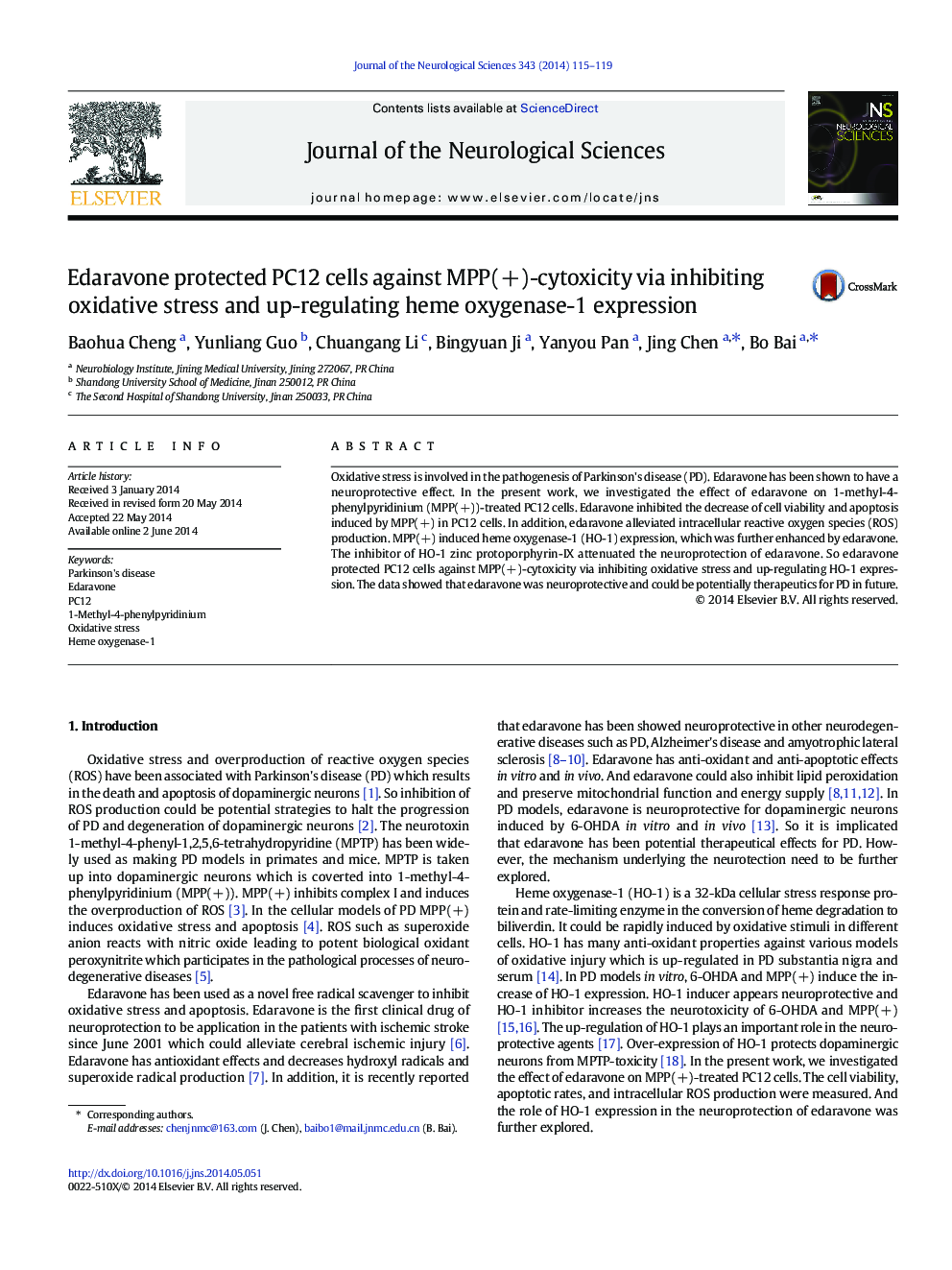| Article ID | Journal | Published Year | Pages | File Type |
|---|---|---|---|---|
| 1913478 | Journal of the Neurological Sciences | 2014 | 5 Pages |
•Edaravone protected PC12 cells against MPP(+)-toxicity.•Edaravone decreased the apoptotic rates of PC12 cells induced by MPP(+).•Edaravone decreased ROS overproduction in PC12 cells because of MPP(+) exposure.•Edaravone up-regulated HO-1 expression in MPP(+)-treated PC12 cells.
Oxidative stress is involved in the pathogenesis of Parkinson's disease (PD). Edaravone has been shown to have a neuroprotective effect. In the present work, we investigated the effect of edaravone on 1-methyl-4-phenylpyridinium (MPP(+))-treated PC12 cells. Edaravone inhibited the decrease of cell viability and apoptosis induced by MPP(+) in PC12 cells. In addition, edaravone alleviated intracellular reactive oxygen species (ROS) production. MPP(+) induced heme oxygenase-1 (HO-1) expression, which was further enhanced by edaravone. The inhibitor of HO-1 zinc protoporphyrin-IX attenuated the neuroprotection of edaravone. So edaravone protected PC12 cells against MPP(+)-cytoxicity via inhibiting oxidative stress and up-regulating HO-1 expression. The data showed that edaravone was neuroprotective and could be potentially therapeutics for PD in future.
